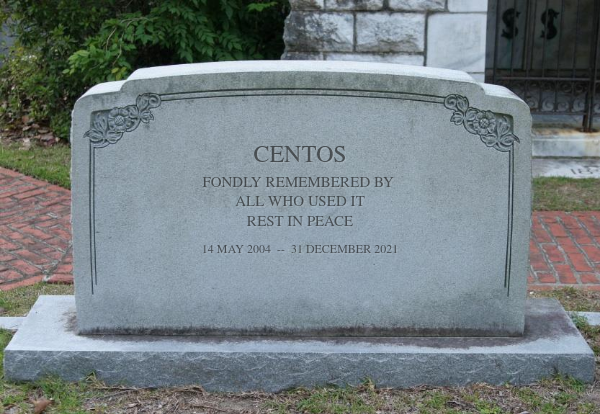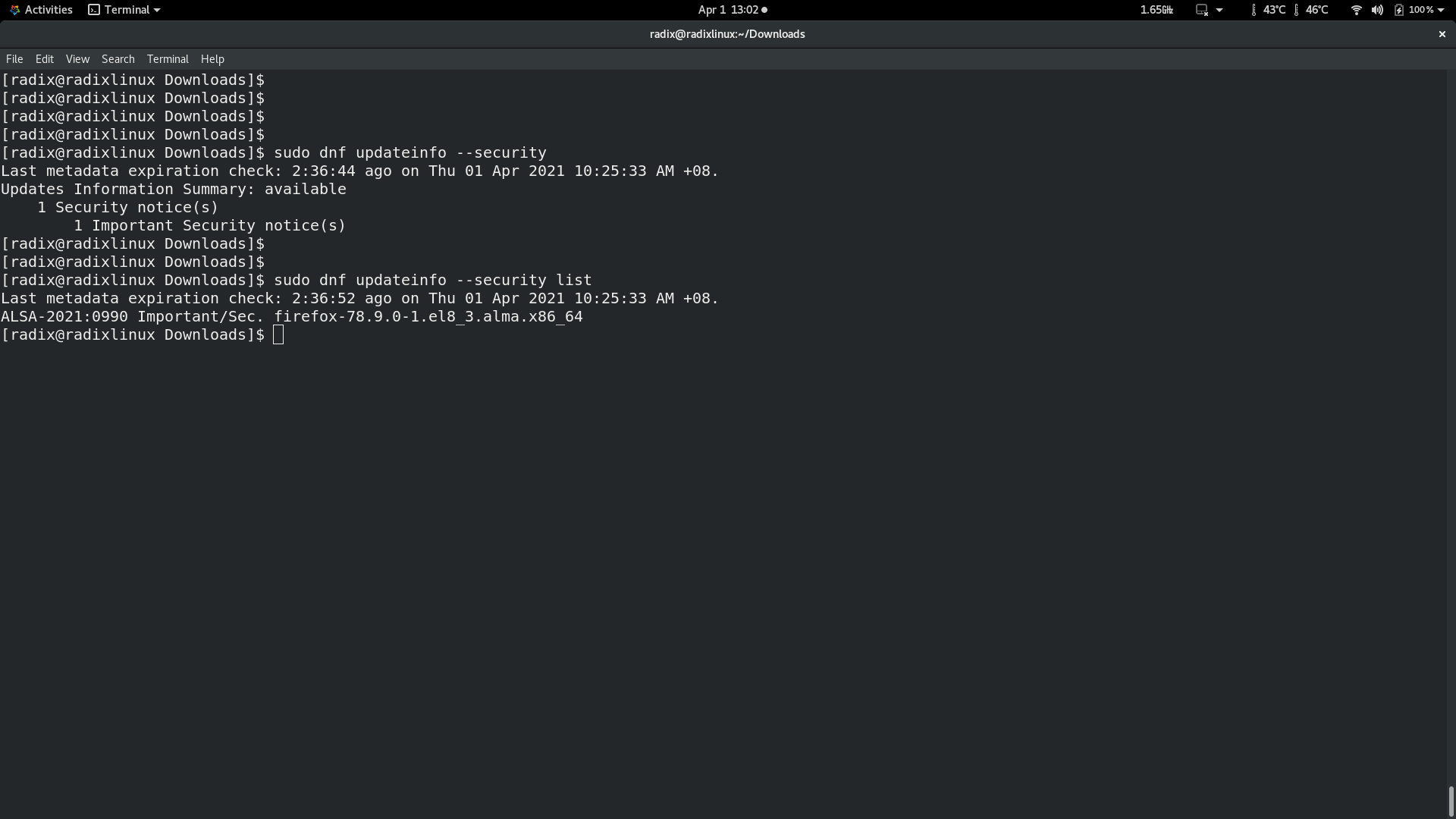"Almalinux"
 The Centos Linux distribution was first released in 2004. It fulfilled its promise as a free and binary compatible version of RHEL ( Red Hat Enterprise Linux ). The project is possible because the source code for all the software in RHEL is publicly available. The Centos project folks will strip out any RedHat copyright information and recompiled to create the binary RPM packages. All the packages are bundled together into a Linux distribution that was easy to install.
The Centos Linux distribution was first released in 2004. It fulfilled its promise as a free and binary compatible version of RHEL ( Red Hat Enterprise Linux ). The project is possible because the source code for all the software in RHEL is publicly available. The Centos project folks will strip out any RedHat copyright information and recompiled to create the binary RPM packages. All the packages are bundled together into a Linux distribution that was easy to install.
Centos is a popular distribution because it mirrors RHEL and provides the corresponding software updates. It has the same 10 years of support life span as RHEL. It has also been incorporated into many commercial software/hardware products.
In Jan 2014, Red Hat announced their hiring of the Centos team and acquisition of the Centos project. Centos still maintained its independence from Red Hat with its own governing board. This change was positive as it gave financial stability to the Centos team and helped to keep the Centos distribution and update releases on a consistent pace.
IBM acquisition of Red Hat closed on July 9, 2019. It was in no doubt that there will be changes coming. In December 2020, Red Hat unilaterally terminated CentOS development. Red Hat will however continue to support the related rolling release distribution called CentOS Stream.

Centos 8 will ceased to be supported on 31st December 2021. CentOS Stream is replace it but it will no longer be one to one compatible with RHEL 8. Software will be changing all the time and eventually it will become the next RHEL release. In the development cycle, CentOS Stream will be positioned between Fedora and RHEL. CentOS Stream will not be suitable for production use due to the software changes. To put it plainly, Centos Stream is like a RHEL Beta which will used for developing new features for the next RHEL release.
The Centos user community was incensed on hearing this announcement. Those who have implemented Centos 8 were placed in a untenable position because instead of a End of Life date of May 2029, Centos 8 support will end in 1 years time.
Subsequently 2 projects were started to provide a replacement to Centos 8.
Rocky Linux is led by Gregory Kurtzer, founder of the CentOS project. The current ETA for a beta release is April 30th.
Almalinux is a project run by The AlmaLinux OS Foundation. Cloudlinux Inc backs the Almalinux project. Cloudlinux Inc makes a Linux distribution CloudLinux OS marketed to shared hosting providers. CloudLinux OS is based on the CentOS operating system; it uses the OpenVZ kernel and the rpm package manager.
Rocky Linux starts from ground zero however Almalinux is being worked on by a team that has already produced a fork of RHEL 8 for CloudLinux OS.
On Mar 30 2021, Amalinux 8.3 was officially released. On Mar 31, using the migration script provided almalinux-deploy. I successfully did a inplace switch to Almalinux from Centos 8. After the script performs a few initial checks, it began the process of removing, reinstalling, downgrading, and upgrading certain packages in order to synchronize the system with the current AlmaLinux release. The entire process took about 20mins which concluded by rebooting the system.
Almalinux being 1::1 compatible, everything works. Already there features that it provides which was missing from Centos. Almalinux maintains the errata information in their repositories. Therefore you can retrieve only updates related to security or perform queries based on types of errata.

The other observable improvement is the speed of updates. Two recent flaws have been found in openssl, which were deemed important. Redhat patched their source code on March 24-25 and released openssl packages for RHEL8 on March 30.
AlmaLinux had updated openssl packages by March 31st. Centos will probably take awhile longer to release their updates. To be fair, Centos will provide quick update responses for critical security patches.

